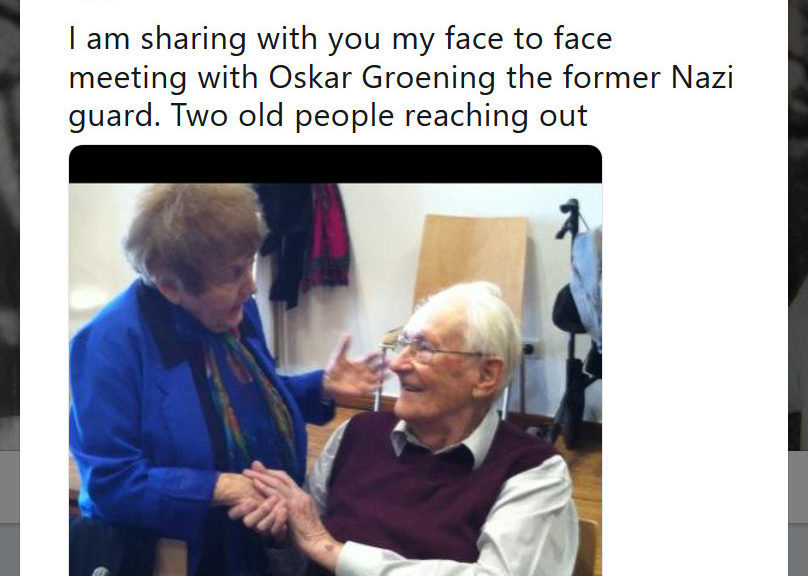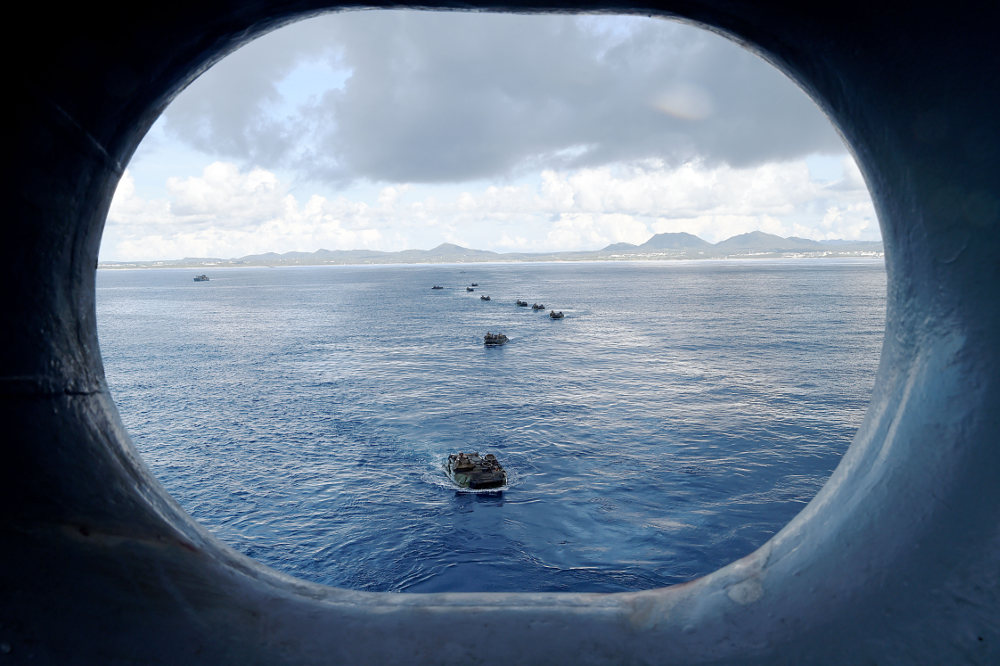Summer has arrived, and along with what has become the standard increase in gasoline prices, the greasy scents of funnel cake and hot dogs permeate the air. Today, I am celebrating the "official" start of summer, Memorial Day weekend, at a local water park. The weather is perfect — mid 80s, low humidity with a gentle breeze. From the look of the small crowd, it appears that the traffic person on the local news was correct in his prediction that most folks would be hitting the beaches instead.
Thinking about the crowds that have headed towards the Jersey Shore reminds me of another beach, one named Omaha. Why a landlocked midwestern city was selected as the code name of one of the five landing points during the Normandy invasion of World War II was something never discussed in my American history classes. As a matter of fact, what little I know about the United States' most expensive and possibly most supported war was learned from my father or on after-school specials.
It was from television that I learned about the internment of U.S.-born Japanese Americans in response to Pearl Harbor and America's formal entrance into the war. I can still feel the shock that assaulted my childish senses when I realized that my beloved country was capable of such an act. This betrayal was further intensified when taken in the context of the unity presented during the war. My father often spoke of the rationing, how children saved every bit of scrap metal they could find. Our recycling efforts now must seem so, well, tame by comparison. That is why a headline like "War Costs Money. Why Can't Politicians Say So?" in last week's Washington Post's Weekly Edition reminds me once again of how far from the reality of war that most of us reside.
While we could lay the blame on a president and political leaders who have chosen to pay for a war without raising taxes or requiring Americans to tighten the purse strings in other ways, the bottom line is that as a whole we have found it easier to follow the leader rather than strike out on our own. Common sense tells us that eventually we will have to pay for a war financed through loans. A huge deficit stares us full in the face and yet the party continues.
There was a lot I didn't learn in high school or at my parents' knee, such as how to truly participate in the political process, that one voice can indeed make a difference, and why truth is the basis for accountability. I try not to make the same mistakes with my own children. Errands are run based on location to avoid duplicate journeys, replacing a broken washer becomes a lesson on energy efficiency, walking is strongly encouraged. So when my son points out the fuel consumption of a Humvee, though hopeful, my heart doesn't race like it used to when my dad told of neighborhood ladies saving sugar coupons to make a birthday cake or the bravery of his uncle, who when separated from his fellow soldiers, endured days of freezing solitude broken only by the German voices that surrounded him. I guess it should be no surprise that sacrifices to support this war are not high on the agenda; after all, for many of us, working for the common good has never been considered as important as honoring the individual.
Here at the water park, the water is warm, the lemonade is fresh, and the sunscreen is plentiful. Another Memorial Day weekend, fun in the sun, the cashiers ringing up the orders. As I watch my two sons frolic in the waves, I remember something else they never taught us in high school — exactly how did the Roman Empire fall? I think a little research is in order.
monica leigh sprouse
Dear Reader,
In The Fray is a nonprofit staffed by volunteers. If you liked this piece, could you
please donate $10? If you want to help, you can also:


